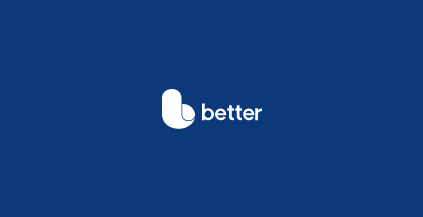AI in HRMS and Its Impact On The Workplace
Artificial Intelligence commonly known as AI is the most talkative topic these days after the successful launch of ChatGPT and Google’s AI Bard. Many industry experts share their ideas, thoughts, and predictions on their respective fields and how the future work environment might be affected by AI. The world is dynamic and evolving continuously, so as a human being we should also need to adapt to new techs to overcome the hurdles and accelerate career growth in this modern world.
How will AI in HRMS Impact The Workplace?
An examination of the workplace during the past two decades, some scholars point out that there are more realistic positive outcomes of an AI upgrade in HRMS. For an overview, there are many opportunities for future workforce management, along with bearable challenges. An AI powered human resource management system (HRMS) software will fully utilize the vast amount of employee data when it comes to report analysis. Management can have more accurate statistical data for productive decision making. So this feature will impact directly on the hiring, onboarding, skill training, employee transfer, performance management and promotions processes.
Workplace Management with AI powered HRMS Software
The HRMS softwares is the evolution of traditional manual HR management. In past decades collecting, storing and managing employee data was a huge stressful long process to all business owners. HRMS software made them realize how to be successful with the right tool. With HR software, managers can focus more on strategic perspective rather than daily operations. Nowadays business can be run by fully automated cloud HR software. The cloud system will track & monitor employees daily operations. This mechanism helps organizations to run under minimal supervision and make a well-organized workforce management. So how will the future of the HR department be when you use AI powered HRMS?
Here are some potential impacts of AI on HRMS and the work environment:
Recruitment and Hiring
Finding the right person to the right position is one of the crucial tasks for any HR. The modern HRMS software has been successfully helping to find proper talents with reasonable filtering options and standards. But somehow it’s not sufficient enough. The AI powered HRMS will find the best candidates automatically and even cover the first stage of the interview. Just imagine how quick the process might be. Any Business owner or HR manager will love that. They just need to continue the hiring process with the filtered and most promising talents.
Onboarding and Training
During the interview phase the AI powered HRMS will understand the strengths and weaknesses of any new employee. So it will recommend the necessary learning materials and sources internally and externally with an easy onboarding process. So at the end of the probation period trainees and interns can be filtered easily and become a successful employee with all necessary requirements. Not only that, an AI powered HR system can answer job role related questions, will help new employees to better understand the work policies, standard operation procedure (SOP), office culture and more. Isn’t it great? AI can be supported 24/7. Less burdens to the management.
Performance Management
Key Performance Indicators (KPIs) are widely used to measure employee performance. Cloud-based HRMS software with integrated time tracking and task management can analyze employee workflows nowadays. With the advancement of AI, HR managers will soon be able to deeply analyze each employee’s performance and outputs. In addition, AI can gather data from various sources such as social media, forums, communities, publications and review sites. This comprehensive search can provide more accurate performance management and will help in training activities to improve employees. Spotting out the weaker points of an employee and taking necessary measures to overcome that will be more easy in future with AI.
Predictive Analytics
Many HR software now offer a unique feature called predictive hiring and workforce management. Using advanced artificial intelligence (AI), predictive analytics can help to find the possible future outcomes based on existing data. In HR, predictive analytics can be used to assess employee retention rates and job satisfaction, enabling management to prepare in advance. For example, if the analytics shows a poor performer, the management or the direct supervisor can provide training to motivate. If an employee is likely to leave the organization, management can come up with a contingency plan to retain the employee by offering incentives such as salary increments, bonuses or any other benefits. The analytical strength of AI in HRMS can help improve workforce management and make HR more strategic in decision-makings.
Employee Experience
Many employees experience frustration due to long waiting times, which negatively affects their overall experience. Modern HRMS strive to offer fast services and some even provide self-service HR apps to improve the user experience. With AI-powered HRMS, the user experience can be further enhanced as the system can instantly provide detailed answers with examples and choices. For example, if an employee requests leave on a weekday, the system can show their pending works and how the leave will affect deadlines. Similarly, if an employee requests sick leave, the HR system can recommend nearby hospitals and necessary insurance documents.
In summary, AI is a powerful feature that is likely to impact every sector, and individuals may need to adapt to this new normal. AI has the potential to ease the burden of work by providing more efficient processes, improving accuracy, enabling cloud-based access, and improving ease of use. However, like all technological advancements, there are both pros and cons to consider. One significant disadvantage of any AI tech is privacy. Each user should understand before using it.
For now try Better HR, the most advanced HRMS software to ease your administration and daily operation burdens by full automation of leave management, attendance management, payroll calculations, income tax calculations, asset management, employee training and more.






